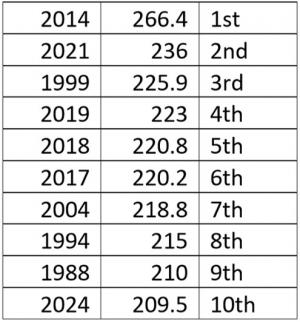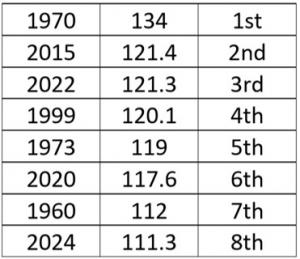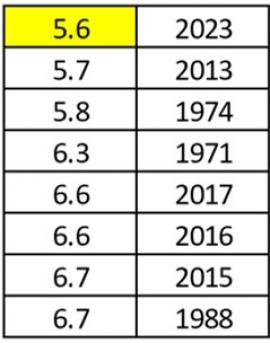Second warmest winter on record at Invergowrie
The winter months, December to February 2024, were the second warmest winter on our records at Invergowrie, with a daily mean air temperature of 5.3°C.
This beats only 1998, which saw a daily air mean of 5.8°C, according to our records, which date back to 1954. It was also a relatively wet winter, with 251 mm of rainfall recorded, making it the tenth wettest winter on our records.
The winter total sun hours for December through to February were 209.5 hours, which was the tenth sunniest winter since our records began.


February focus
February was the second warmest February on our records, with a daily air mean of 6.2°C, 1.9°C above the long-term average, and peaking at 13.8°C on February 2, with a low of -2.5°C on February 8 (the warmest February was in 1998 with a daily air mean of 8.2°C).
February saw slightly below average rainfall, at 40.2 mm (9.8 mm of it alone fell on February 9), compared with the long-term average of 53 mm. It was the eighth sunniest February on our records.
The month was the eighth sunniest year on record, with 111.3 hours of sunshine – 135.1% above the long-term average.
Additional Winter data Dec 2023-Jan 2024
December 2023
December 2023 was the second wettest December we have ever recorded (the wettest December was in 1977 where 215.6 mm of rain fell).
Despite 2023 being the seventeenth dullest December (held jointly with 1995 and 1982), it was also the eighth warmest December on our records.

January 2024
January 2024 was the fifteenth sunniest and also the fifteenth warmest, held jointly with 1993, with slightly below average rain fall for the time of year.
2023
Last year was the wettest year on record at our Invergowrie site with a total rainfall of 995.4mm.
The next wettest year was 2002, with 979.8 mm of rain. Despite the level of rainfall recorded, it was also the 13th sunniest year on site, with 1556.3 hours of sunshine.
Read more:
2023: our wettest year yet | The James Hutton Institute
Can we soften the blows of future flooding events? | The James Hutton Institute
Disclaimer: The views expressed in this blog post are the views of the author(s), and not an official position of the institute or funder.
